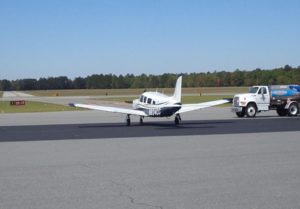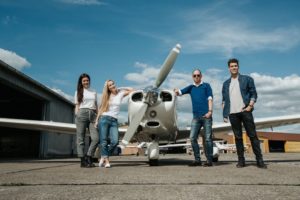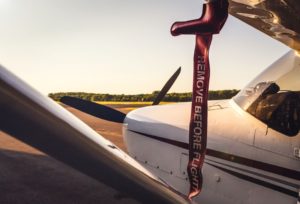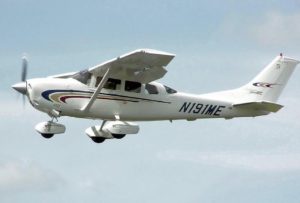Sharing economy refers to an economic and social system that enables shared access to goods, services and datas: in particular, this term is used to describe a marketplace in which participants can collectively use products and services through forms of collaborative consumption, and where it is possible to experiment original ways to use individual property. Here are some examples within the aviation industry.

FRACTIONAL OWNERSHIP
In the aviation world one example of sharing economy is the Fractional ownership of small aircrafts.
In shared ownership, a potential fractional owner can buy a 1 / 8th, 1 / 6th, or 1 / 4th share and pay a fraction of the market price. For example a Cirrus SR22 costs around $ 600,000,few people can afford the cost of the aircraft in its entirety; however, thanks to fractional ownership, a buyer can purchase 1/8th of a Cirrus SR22 for about $ 40,000 plus interest costs and other fees. Fractional ownership is a cost saving option for Cirrus SR22 owners, which operating and maintenance costs can be estimated at least$20,000 a year.
Thanks to the Internet, social media, and mobile devices, the proliferation of the sharing economy has increased dramatically; one example is Fly Aeolus, the first European company offering relatively low cost air taxi services using single piston aircraft (SEP) under a shared ownership model.
The Antwerp-headquartered company, founded in 2009, has started a comprehensive marketing campaign in 2016 launching its services between the Netherlands and Belgium with only one privately owned Cirrus SR22 ; the company is rapidly expanding: last october it took delivery of its 13th Cirrus and is willing to add three more aircrafts before the end of the next year. The company is also planning to expand its operations to France and Germany.

credits: Fly Aeolous ,Cirrus Sr 22 aircraft
To join the service, customers must acquire a small share in an aircraft. << This gives them access to the whole fleet >>, says Steefan Ghijs CEO of Fly Aeolus. Flights are offered on ad hoc basis, with a professional pilot flying the aircraft and ancillary services upon request; this business model has been well received by SR22 owners, as it helps to offset the cost of aircraft ownership. <<They can typically expect to receive around €400 per flying hour>>, says Ghijs. << They also get access to the pool of aircraft, which is particularly handy when their aircraft is undergoing maintenance>>.

credits : Fly Aelous. Cirrus Sr22
FLIGHT SHARING
Another way to democratize the skies over Europe is offered by Wingly– a ride sharing company for light aviation – which offers private pilots and passengers an option for sharing the costs of non-commercial flights.

In partnership with an insurance company, Allianz Global Corporate & Specialty, ‘Wingly’, connects private pilots with passengers so that the high costs of a private flight can be shared between them. Private pilots do not use Wingly to make a living but to save money on their flights, in order to fly more and pursue their passion; the service so far covers flights in France, Germany and the UK.
Ride sharing technology is nothing new, but its use in the civil airspace is relatively innovative.<< Ride-sharing, as a part of the overall collaborative economy, is quite popular in our society, with companies like Uber, Lyft, Bla Bla Car, Zipcar, Airbnb, and so on, >> says G. Bareille, General aviation underwriting manager AGCS, << and we are seeing more and more start-ups adapting this business model. Sure, some people are still reluctant, but this will change as more and more companies come aboard and are successful>>.
This is how it works : pilots of small planes add their services to the Wingly website indicating their flight details, destination and number of available seats, Passengers book seats accordingly to a desired destination or just for a sight -seeing trip with either a credit card or PayPal.
The program allows pilots to keep their skills current while also offsetting high costs of air travel with passengers. The pilots must remain strictly non-profit in order to be eligible to participate in the program (otherwise, they would be considered ‘commercial ’ pilots and regulations would be much stiffer). << Wingly is quite innovative in the GA world, It works within recent EU regulatory rules and it will be very interesting for us insurers to follow the growth of this new collaborative economy in airspace.>> says G. Baraille.

ONLINE AIRCRAFT RENTAL MADE SIMPLE
While the American regulatory body, the Federal Aviation Administration (FAA), has not allowed flight-sharing web platforms in the USA because the advent of sharing economy products in general aviation has been raising questions about how they fit into the current regulatory and insurance liability landscape, there are still chances to expand general aviation’s utilities without significant financial commitments.









